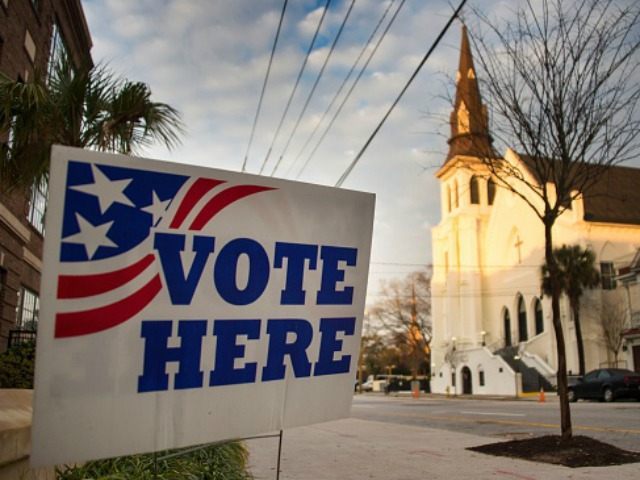Super Tuesday is when the nomination contest leaves the quirky confines of individual states and finally assumes the feel of a national campaign.
On March 1, there will be 12 states, concentrated in the South but also scattered around the country, allotting just under 600 delegates, around 25 percent of the overall total. Competing on Super Tuesday takes a lot of money, which gives Donald Trump and Ted Cruz an edge, and will sorely test the theory behind Marco Rubio’s candidacy.
Rubio raised just over $4 million in January, according to FEC reports. He spent over $10 million in that crucial month and had just $5 million cash on hand at the beginning of February. After expensive contests in New Hampshire and South Carolina, Rubio is likely to have very depleted campaign accounts. His campaign reportedly spent almost $5 million for its second place finish in the South Carolina primary contest.
Rubio’s campaign has been a relatively high-spending enterprise. In the last quarter of 2015, his campaign spent more than it brought in. More worrying for Rubio, most of his donations are high-dollar, maxed-out contributions. Just around 20 percent of his donations in January were $200 or less. This means Rubio has to attract new donors, rather than being able to mine the donors he already has.
Ted Cruz has almost the exact opposite of a campaign fundraising approach. Cruz had just under $14 million cash on hand at the end of January. His campaign raised $7.5 million in January and spent $12 million. Almost half of the amount he collected, though, were in donations of $200 or less. This puts his campaign in a strong position to keep raising more funds from existing donors.
His campaign was also far more frugal than Rubio’s in February. In South Carolina, his campaign spent just around $2 million, while in New Hampshire, his campaign spent just under $1 million. Cruz has been able to achieve better election results with far less money than Rubio.
Donald Trump obviously is self-funding his campaign. He has loaned his campaign around $17 million so far. For much of the campaign, Trump has been able to rely on earned media and enthusiastic supporters to supplant a great deal of traditional campaign spending. He has started to spend real money, however, as voting begins. His campaign spent almost $2 million in advertising in South Carolina.
It is safe to say, however, that Trump will not face a cash crunch heading into the Super Tuesday contests.
With just a little more than a week until the Super Tuesday votes, paid advertising will be much more important than it was in the earlier states, where campaigns have time for retail politicking. The Super Tuesday states include very expensive media markets like Boston, Washington DC, several in Texas, Atlanta and Memphis.
This is where the Rubio campaign faces its existential challenge. Only Jeb Bush has spent more than Rubio in the contests to date. Rubio will benefit some by Bush’s decision to drop out of the race, but he will still have to spend considerable funds to be competitive on Super Tuesday. The challenge is tougher, becaues few of the states holding votes that day are natural fits for Rubio’s message.
Most pundits assume that Bush’s exit will help Rubio replenish his campaign coffers. What’s overlooked is how critical that is for his campaign to survive. His super PAC, Conservative Solutions had just over $5 million cash on hand at the end of January. It spent more than $7 million in South Carolina, suggesting it is spending money as quickly as it raises it.
Rubio’s Puper PAC has announced a multi-million dollar ad buy across the Super Tuesday states, but it will have to work furiously to match that spending. Oracle billionaire Larry Ellison announced over the weekend he is donating another $1 million to Rubio’s Super PAC. That brings his total donations to Rubio to $4 million.
Rubio may be able to tap donors to Bush’s Right to Rise Super PAC, but Rubio already has more million dollar donors than Bush. Bush’s fundraising total was largely built on a large number of 5 and modest 6 figure checks. That is certainly real money, but it takes time to collect.
The further challenge for Rubio is he is unlikely to win any contests on Super Tuesday. Other than the Puerto Rico primary on March 6th, in fact, he is unlikely to win any state contest until March 15th, when Florida and several other large, more moderate states, vote.
That is a very long time to go to secure a campaign’s first primary win. It would, in fact, literally make history. Keeping donors on board through such a long series of primary losses will be an incredible challenge.
One of the more incorrect assumptions of the commentariat is that, with fewer mainstream candidates in the face, a consensus choice will be able to competitively challenge Trump and Cruz. The reality is that the mainstream candidates were splitting a rapidly declining share of the Republican primary vote. A consensus choice may be better placed to compete for second or third, but still lacks the broad support to win a contest.
Rubio’s campaign, in other words, is built on a very expensive theory. Keeping that experiment running will require far more funds than he has been able to raise to date.

COMMENTS
Please let us know if you're having issues with commenting.